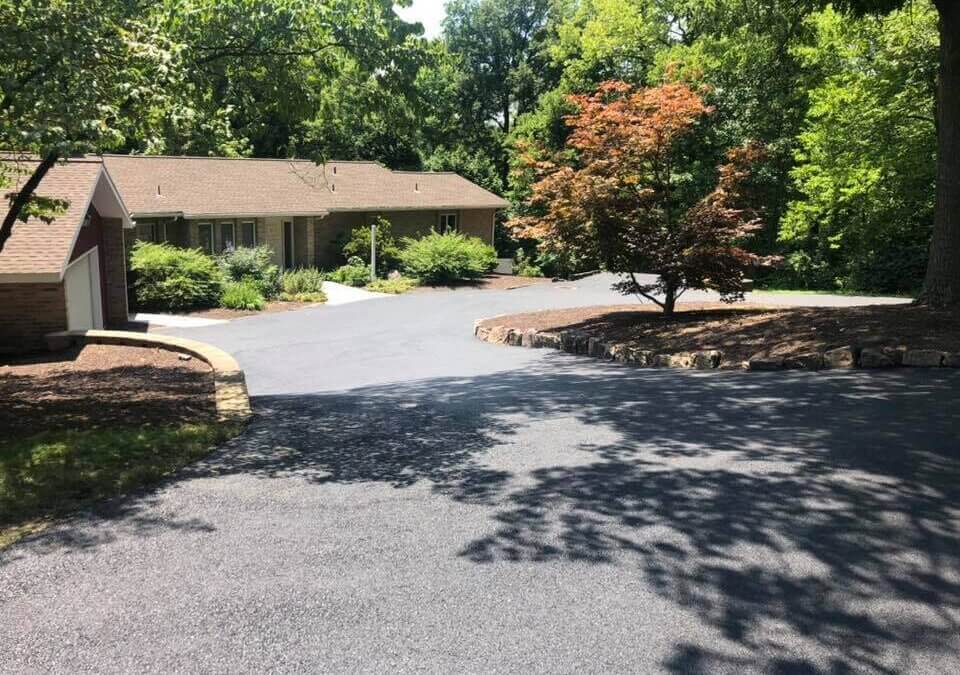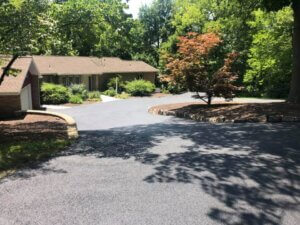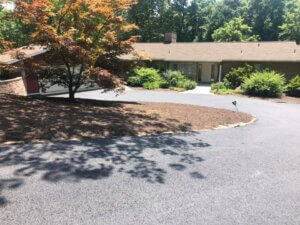The Complete Guide to Paving Materials in York
When landscaping an area the question of the types of paving material to use is one that should be given serious consideration. Your choice of paving material will have an overriding impact on the landscape and will need to be in tune with the existing environment. You should also consider more practical aspects and choose the most appropriate type of surface for the amount of traffic expected. Will your preferred material be durable enough for the project? How does the chosen material fit into the overall budget? You may wish to consult an expert on paving materials in York PA.
Concrete
Concrete is comprised of a mixture of materials: cement, aggregate, and sharp sand. When these ingredients are mixed they will solidify into a hard material. The proportions used will create materials of differing strengths, which are suitable for different purposes. The concrete will start to harden in around two hours, however, it may take several days for the material to reach its full strength. It is also important to ensure the correct depth of material is used for the project.
For example, a footpath should be 75mm – 100mm thick but a small driveway for light vehicles will range between 100mm and 200mm depending on the expected weight of vehicles. A concrete path should slope slightly so that excess water will runoff.
Instead of poured concrete, you may consider interlocking concrete pavers. These are widely used in the Netherlands where the ground frequently shifts and sinks. Poured concrete would crack but pavers are more flexible.
Brick
If considering a brick footpath in your garden you should try to keep 2-3 ft away from mature trees that have complex root networks. The proposed area for the path should be dug and flattened and then a layer of crushed stone added. On top of the stone, a layer of sand and the bricks are laid on top of this base. Brick paths can enhance older properties, especially if older bricks are used. Do not forget that you will need a border that keeps the bricks in place. The surface of the path should also be sloping so that water can run off, otherwise, if water seeps between the bricks, they may well pop-up.
Gravel
Gravel is available in various colors and can be used in very creative ways, with divisions between various colored sections. Construction of a gravel path will, once again, involve digging a trench, lining it with crushed stone, and then covering that with a weed resistant membrane. Finally, fill the trench with gravel. The advantage of a grave path is that it takes less skill to lay. Unlike brick and concrete paths there is no need to slope the path to let water runoff. The small stones will absorb the water and if there is any freezing they will not be stressed like a brick.
Limestone
A limestone path will enhance most informal gardens. Limestone may be in the form of rectangular slabs or more informal stone shapes. For more formal ones choose brick. Limestone is normally available in three colors: grayish-white, crimson white, and off-white. A 3ft wide by 70ft long path will take about 3 tons of stone, so, should you choose to do this yourself, this option will involve a lot of lifting. For a pathway with heavy traffic, you will need a compacted gravel base some 6 inches deep.
For ornamental, less traveled paths you can use a 2 -3-inch sand base. Your task is to try and keep all the tops even and you should adjust the height by adding or removing sand under each stone.
Tile
For a Victorian look, you might consider a tiled path. Most people would need to employ a professional tiler who will be able to calculate the number of tiles required. Many of the original Victorian tiled paths are still in use today, some 150 years later.
Do not feel constrained to choose traditional tile design. If your property is more modern, why not choose something bold that will make a statement
Final Thoughts on Paving Materials in York
Whatever types of paving material in York you choose, be sure to think it through and imagine how it will relate to the overall landscaping. Make sure that you choose one that is strong enough for your needs and consider issues such as drainage. In most cases, calling in a professional may well be the best option. Get advice from experts in the field.



